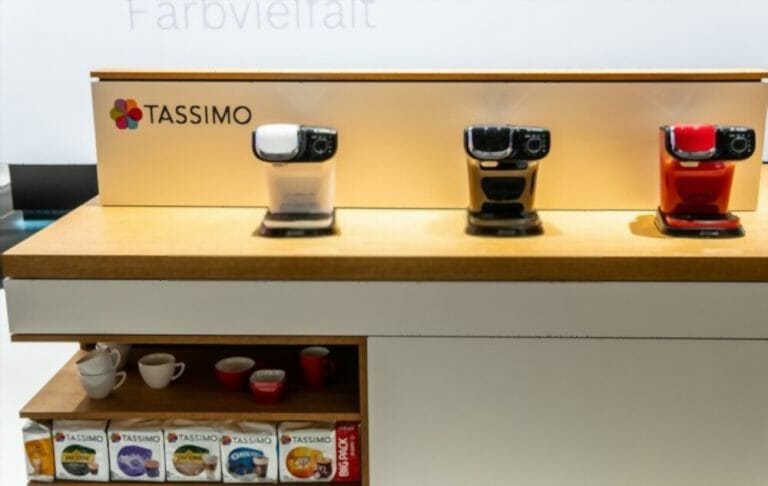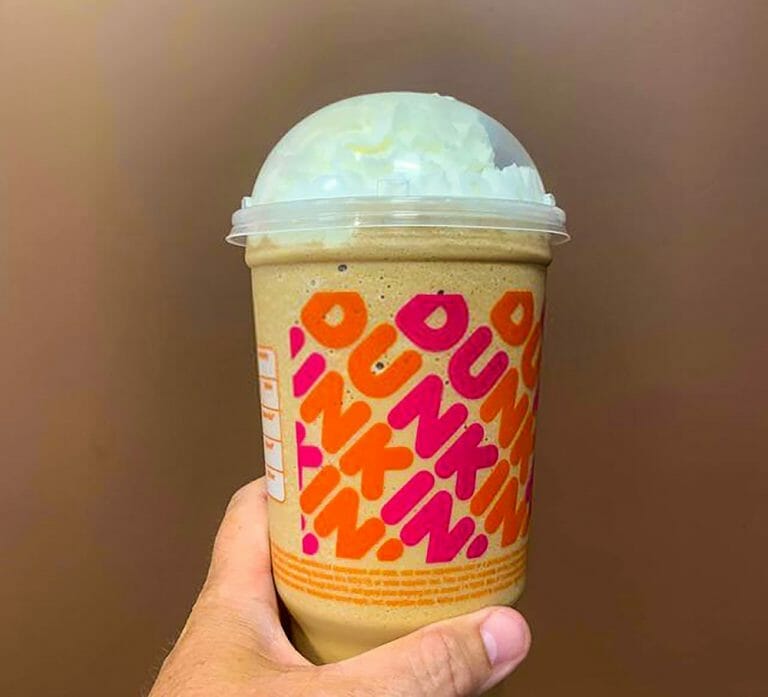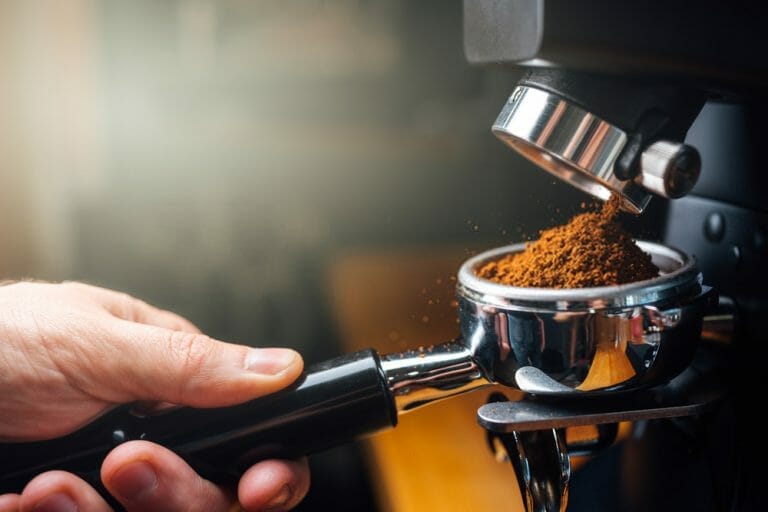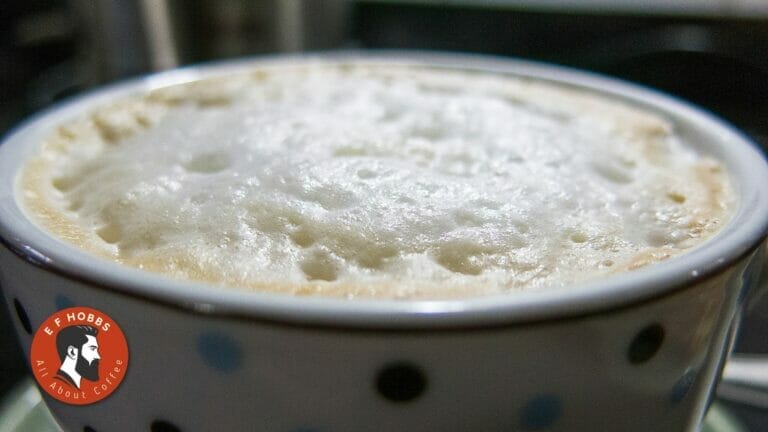Is Espresso Bad For You?
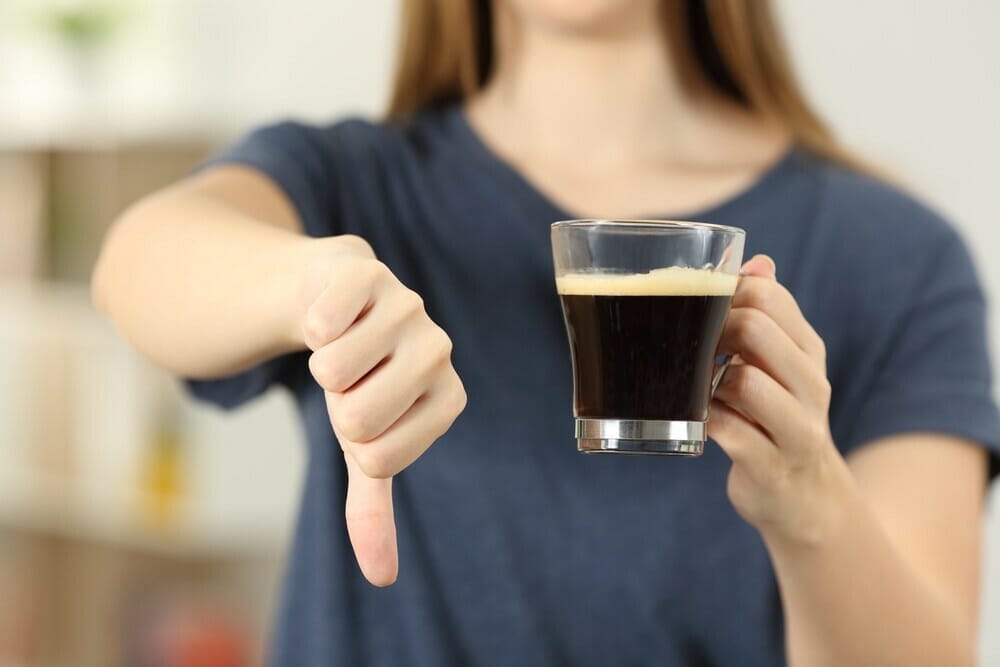
You are wondering whether drinking a cup o’ joe delivers a healthy or an unhealthy jolt. The truth is, it depends.
Many people believe it is bad for you, while others swear that "an espresso a day keeps the doctor away."
It gets us out of bed in the morning, but does it also give us a solid kick in the pants? When you drink espresso, your body reacts similarly to how it responds to consuming other caffeinated drinks.
The question of whether espresso is bad for you or not seems a bit silly considering that it’s coffee. But the truth is, there are some much easier alternatives to drinking high-caffeine drinks like espresso.
Read on to find out how your regular joe stacks up against espresso and if it’s worth giving up your morning cup.
A quick note: We’re not saying that there’s anything wrong with drinking coffee, but we are trying to show how great it is to avoid drinking high-caffeine drinks. If you need your morning espresso drink, we won’t try to convince you that it’s terrible because of its caffeine content.
However, if you’re looking for a decaf drink and you don’t want anything fancy, you might want to try making a simple cup of decaf instead.
If you love drinking espresso, this may come as an alarm to you, but in the long run, it's not good for your health.
You may think that you can handle those high levels of caffeine — after all, you’re used to it — but the fact is that your body can only take so much before you have to give up coffee for good.
Let us first look at the benefits of drinking a cup o' joe.
You’ve probably heard that it’s good for your health, but there are much better alternatives to espresso that you can use to get a good dose of caffeine without harming your body, such as decaf, even if it tastes awful.
Health Benefits of drinking coffee:
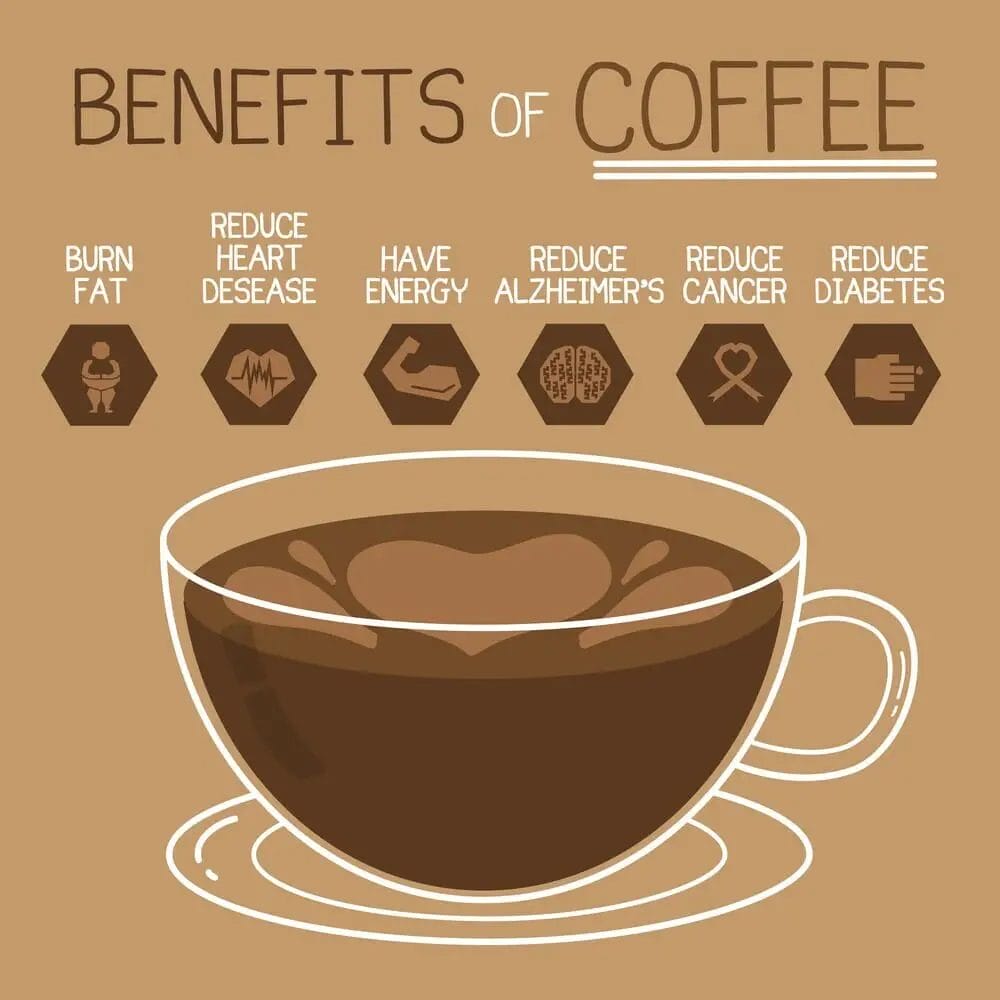
- Boosts your metabolism: The caffeine in an espresso drink promotes energy production and increases the speed of your metabolism, thus burning fat. The result? You’ll look leaner and feel better.
- Keeps you alert: Caffeine keeps you alert and improves your concentration.
- Boosts mental alertness and clarity: Caffeine produces an immediate boost in mental alertness, and when taken regularly, it prevents the onset of mental fatigue.
- Improves mood: Coffee contains many vitamins and minerals that help keep your emotional balance.
- Reduces the risk of heart disease and diabetes, and liver cancer: The antioxidants in coffee help reduce heart disease, diabetes, and liver cancer.
- Lowers bad cholesterol (LDL): Drinking coffee can lower your LDL or “bad” cholesterol levels by up to 15%.
- It reduces the risk of Alzheimer’s disease and Parkinson’s disease, and other age-related memory loss diseases.
- Reduces the risk of several types of cancer: Coffee consumption helps reduce the risk of several types of cancer, including skin, liver, prostate, oral cavity, endometrial, and leukaemia.
- Improves longevity: Coffee drinkers live longer than non-coffee-drinkers. Long-term memory is also improved, as is the ability to learn new things.
- Promotes weight loss: Coffee can help with weight loss by suppressing the hunger hormone ghrelin, which tells the brain that you are full.
- Strengthens your bones: Caffeine in coffee may protect against bone loss. You can also try adding milk to your coffee, as milk contains nutrients that can help keep your bones healthy.
- Helps prevent Type 2 diabetes: Coffee can help prevent Type 2 diabetes, especially in women who are already at risk.
Drawbacks Of Drinking Coffee
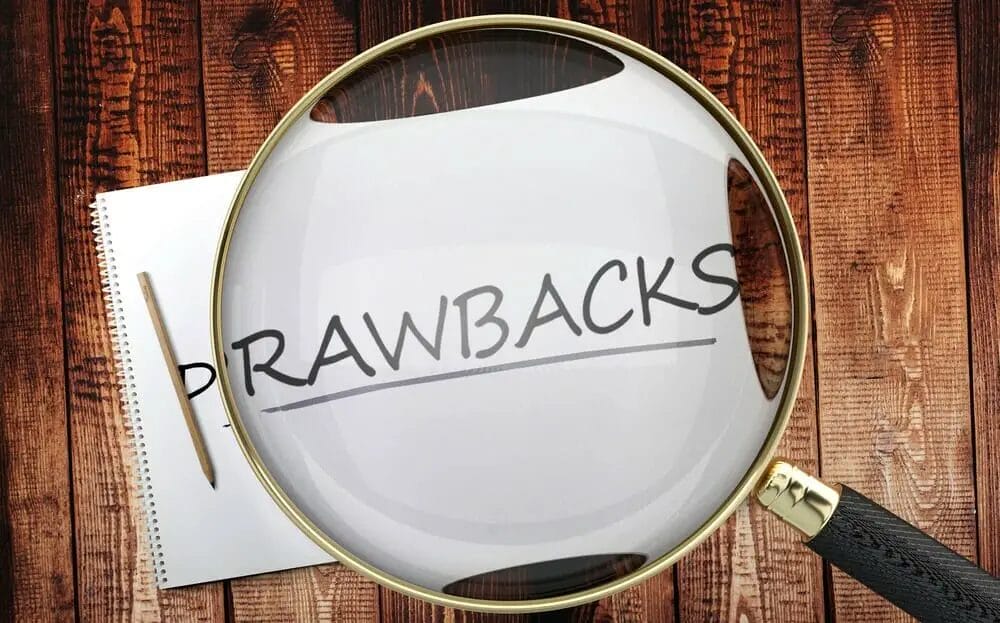
Now that you have read the health benefits of drinking coffee, and felt as if you are doing no such wrong drinking lots of it, let’s look at the drawbacks.
- It makes it harder for you to sleep. Whereas decaf can help you get a good night’s sleep without affecting your sleep quality, it does not appear that breakfast coffee helps with this problem at all.
- The caffeine in espresso can cause jitters and anxiety.
- It can damage your teeth and gums, as well as increase the risk of them becoming brown. The acids and sugars in coffee corrode and stain your teeth.
- It can cause irregular heartbeats.
- It can make you more prone to heart disease and diabetes.
- Drinking espresso can lead to elevated uric acid levels and can cause kidney damage.
- Drinking caffeine while pregnant poses a definite risk of giving birth to babies with various health problems, including defects in the heart.
- Drinking espresso can lead to high blood pressure.
- It can cause your heart to beat irregularly, especially if you drink it on an empty stomach.
- It can clog your arteries, thus contributing to blood clots and then leading to heart attacks.
- If you have an anxiety disorder, don’t drink coffee because it can make the problem worse.
- If you drink more coffee than your body can handle, you might experience frequent headaches.
- It can contribute to cataracts.
- Caffeine can cause tremors, tics, and muscle cramps by increasing the production of adrenaline in your body.
So, based on the benefits and drawbacks above, you’ll probably be thinking that there’s no way that a cup of coffee isn’t good for you, while at the same time enjoying your morning joe is not bad for you either.
You might also realize that it is terrible for you, so what should you do to get the benefits?
Should you be careful about how much caffeine you consume? Should you switch to decaf?
Or is there a middle ground that can help you save your health without harming it? It turns out that there is, though there’s only one easy way to do it: drink decaf.
A study shows that caffeine consumption is associated with longevity.
The researchers found in their studies that drinking espresso every day had longer lifespans than non-coffee consumers, even when they controlled for other factors, like smoking and obesity.
The good news is that decaf coffee does not contain any caffeine. You can take decaf and drink it without any worries whatsoever.
The coffee beans in decaf are treated with flash decaffeination that removes the caffeine and other harmful substances from a coffee bean.
This process of decaf coffee beans leaves behind an extremely high antioxidant rate, about six times higher than regular coffee beans.
On the other hand, if you’re a coffee addict and have been drinking espresso every day for years, it might be a good idea to switch to decaf.
However, if you're having trouble just suddenly switching over, that might mean that your body needs some time to adjust.
Even though coffee is a trendy drink in the United States, many people do not like it and would instead not try it.
It seems that you either love coffee or hate it, and it's hard to find someone who falls somewhere in-between.
Is espresso healthier than coffee?
Decaf coffee is better for you than drinking caffeinated coffee. In fact, decaf coffee is healthier than regular ol’ coffee.
Is it bad to drink espresso everyday?
Espresso is a great drink, but it is not recommended to have it every day. Drinking espresso everyday can lead to many health problems because caffeine is a very addictive drug.
Is a shot of espresso a day bad?
There is an optimal level of caffeine that a person needs, and drinking too much espresso every day may lead to harmful side effects.
Why is espresso so good?
The answer to this is simple, espresso is a great drink because of the caffeine, which gives your brain a boost when you wake up in the morning.
Is espresso bad for your kidneys?
A study done in Norway showed that drinking four cups of espresso daily can cause fragile bones, but drinking espresso four times a week or one cup per day was okay.
Is espresso good for weight loss?
Espresso raises the pace of your metabolism, which means that it can help you shed off a few pounds. Drinking espresso is good for your body, but if you drink more than what’s recommended, then you should get yourself checked by a doctor.
Is espresso just really strong coffee?
Espresso is a caffeinated beverage made from coffee, which makes it close to coffee. But there is a difference between the two. Espresso has a strong kick, which is why it is a favorite among many coffee drinkers.
Do you put milk in espresso coffee?
There is a standard shot of espresso, which contains one tablespoon in it. There are some people who add milk to it, but there are also those who do not add milk to an espresso.
What kind of coffee is best for liver?
Coffee is usually a drink that is loved by many, but there are some types of coffee which are better for the liver. This type of coffee contains lower levels of caffeine.
Conclusion

So to answer the question of whether drinking espresso is bad for you - particularly about health, the answer is a definite yes.
Even though coffee has many health benefits, it can also have severe effects on your health if you drink too much of it.
One thing espresso drinkers need to be careful about is how much caffeine they drink.
If you cannot stop yourself from drinking caffeine, at least drink decaf because the most dangerous effects of coffee are associated with drinking too much caffeine.


